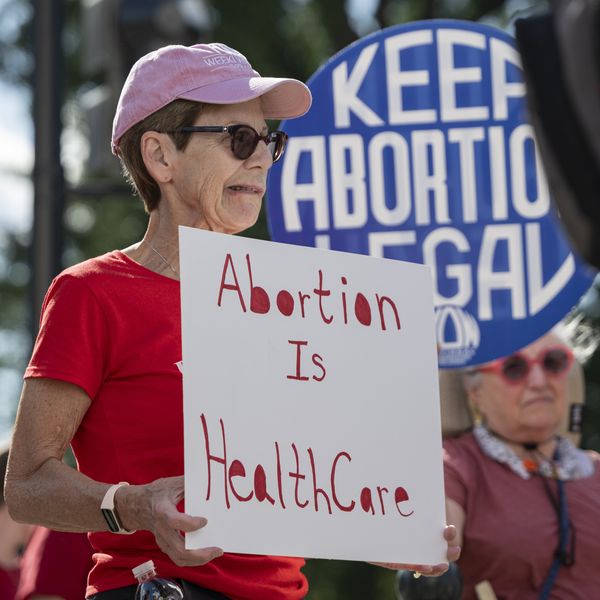A majority of Americans support women's right to abortion, a fact that's been true for about two decades now. Support for that right actually increased after attacks on Planned Parenthood last year. And development experts have for decades, maybe centuries, identified women's right to control family size and birth timing as critical to communities' economic and social development. That's just by way of indicating how far removed from the reality of abortion is the US media conversation about it--at least as represented by cable news.
Rachel Larris and Sharon Kann at Media Matters surveyed 14 months of evening cable news on Fox News, CNN and MSNBC. They found a discussion that's first of all dominated by the part of the population that doesn't have abortions--62 percent of those talking in segments on the topic were men. On Fox, 70 percent of those discussing abortion (including hosts/correspondents) could be identified as anti-choice--but CNN also had three times the number of appearances by anti-choice guests as pro-choice guests.
Researchers tracked the incidence of certain types of misinformation--like the idea that birth control is abortifacient; Fox won that contest in a walk. And while women of color are disproportionately affected by restrictions like the Hyde Amendment, which bans abortion access for women who get their healthcare through Medicaid, only one guest in the three-month study period was an advocate for reproductive rights for women of color.
That guest--Jessica Gonzalez-Rojas of the National Latina Institute for Reproductive Health, who appeared on All In With Chris Hayes--has made the point that Hyde was and is a deliberate attack on low-income women's reproductive freedom. Henry Hyde famously said he'd like to be able to prevent rich and poor women from deciding whether to have a child: "Unfortunately, the only vehicle available is the [Medicaid] bill."
Some states have workarounds for Hyde, Gonzalez-Rojas notes, but that just means something so crucial to a woman's life can be dependent on her zip code. And nearly half of Latinas and roughly 70 percent of black women live in states without public coverage of abortion, most of which are now also considered "hostile" due to newer state restrictions.
More of that sort of economic and racial context would be one way to move media's abortion conversation beyond what this research suggests is a pretty unhelpful he said/he said debate.


